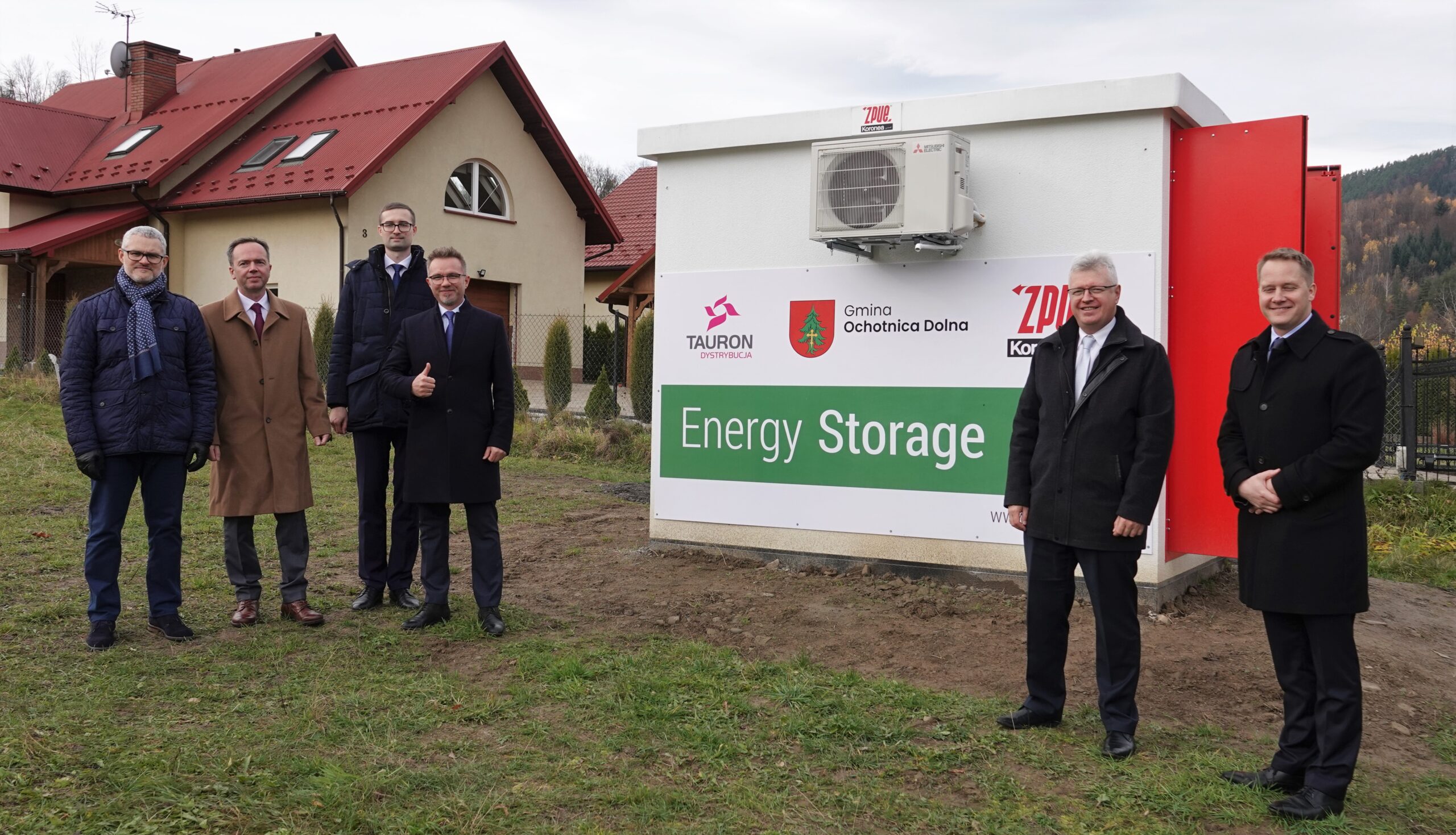Definition of energy storage
Energy storage is called a device or set of devices for storing energy, connected to the grid and having the capacity to supply electricity to the grid. In addition, the installation, as a rule, must not be a source of emissions that constitute a burden on the environment. In practice, energy storages are nothing more than rechargeable batteries, in which electrical energy is converted electrochemically. Nowadays, the most commonly used for this purpose are lithium-ion batteries, which are characterized by relatively low weight and long life (they last for many thousands of charges). Batteries work by storing and then releasing electrical energy through reversible chemical processes.
Technologies used in energy storages
A lithium-ion batteries are not the only one type of energy storages. Among energy storages, we can primarily distinguish pumped storage power plants, CAES – Compressed Air Storage, flywheels, hydrogen storage, flow batteries, lead-acid batteries, superconducting systems, supercapacitors and the aforementioned lithium-ion batteries.
What is Tauron Group?
The Tauron Group is one of the largest business entities in Poland and is among the largest energy holdings in Central and Eastern Europe. It operates in all areas of the energy market – from coal mining, to the generation, distribution and sale of electricity and heat and customer service. It has a capital of more than PLN 8.7 billion. The holding company employs more than 25,000 people.
Situation in Ochotnica Dolna municipality
An industrial energy storage facility in Ochotnica Dolna (Poland) was connected by Tauron to its low-voltage grid. The installation is a pilot to show the impact of the storage facility on stabilizing the operation of the power grid.
A low-voltage grid with a high concentration of 2 kW photovoltaic microinstallations was chosen as the storage location.
The Ochotnica Dolna municipality has been gradually increasing the share of PV installations on its territory since 2015. As a result, it has one of the highest densities of 1-phase micro-installations in Poland, which periodically limits prosumers’ ability to feed energy back into the grid.

Tauron energy storage in Ochotnica Dolna with a power of 100 kW and a capacity of 180 kWh was connected in parallel to the end of a selected low-voltage circuit. So far, the municipality has paid nothing for the storage. It is assumed that the capacity of 1 kWh is the cost of approx. 3,000-4,000 PLN. So, if the municipality were to pay for the storage, it would have to spend 540,000 – 720,000 PLN. The selected circuit is characterized by a large share of PV micro-installations and connected energy consumers with high power demand. The main recipients of this solution will be the residents of the municipality in Ochotnica Dolna and the surrounding area.
The energy stored in the plant will allow the daily energy needs of 25 households in the area to be met.
